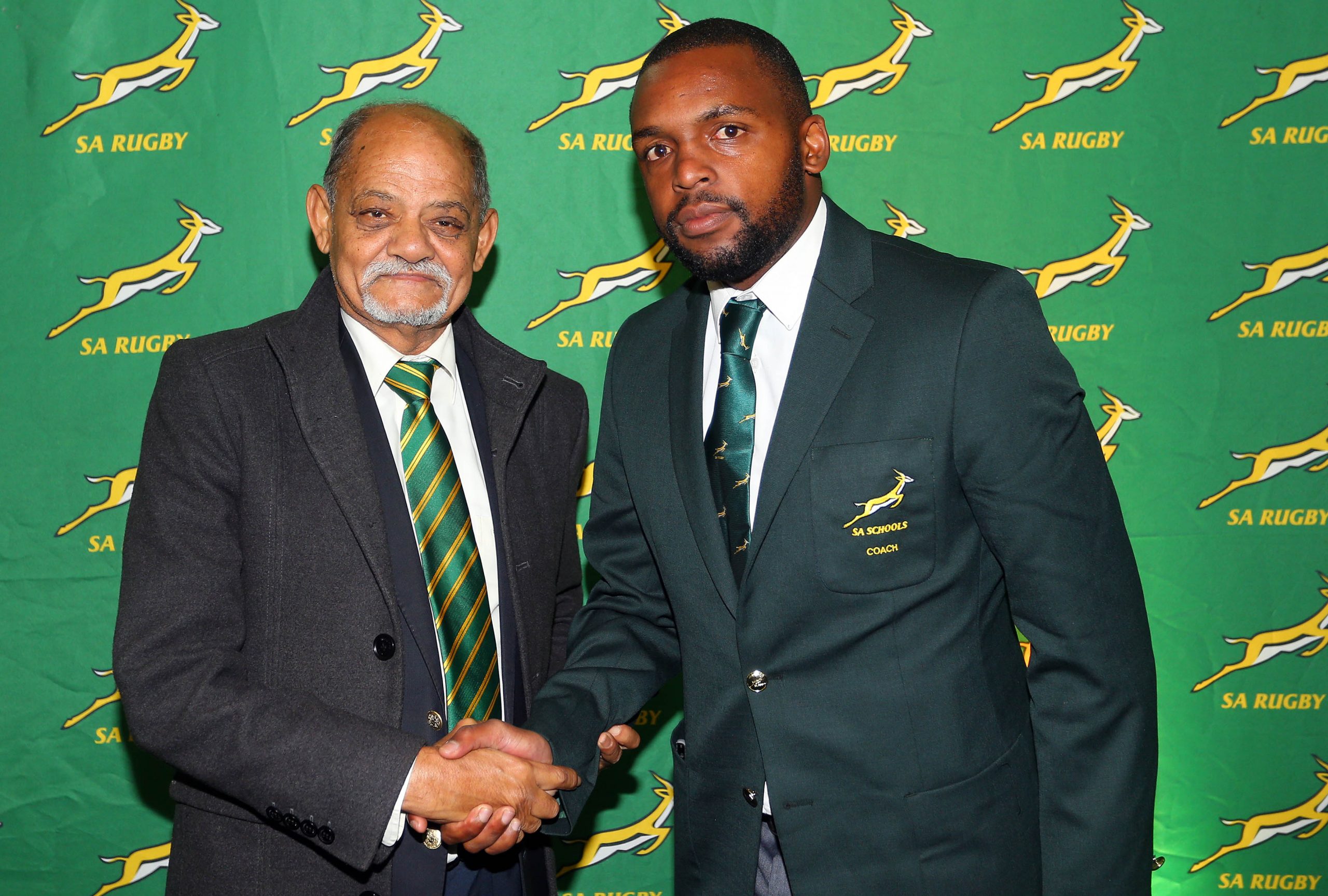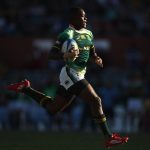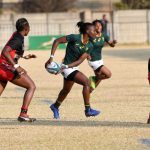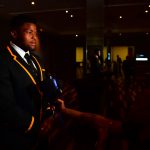Teachers bring unique approach to rugby coaching
SA Schools coaches Mziwakhe Nkosi and Phiwe Nomlomo have a holistic approach to schoolboys on the rugby field, taking their home lives and learning styles into account.
Author:
2 September 2019

Two light beams have penetrated the darkness that is the rugby coaching landscape in South Africa, which isn’t particularly friendly to black coaches. SA Schools coach Mziwakhe Nkosi and SA Schools A team coach Phiwe Nomlomo’s influence extends beyond what they do on the touchline.
SA Rugby plucked the coaches from their high schools – Nkosi coached at King Edward School VII (KES) in Johannesburg and Nomlomo at Selborne College in East London – and put them through its Elite Player Development (EPD) programme, which was founded in 2015.
Nkosi and Nomlomo’s teaching backgrounds have given them the talent-management touch of educators. Their empathy for the children they coach and level of human understanding has made them the best-equipped pair to lead South Africa’s next generation of rugby players.
“We’ve got to understand each person, how they take in information – which is different from another person – and what makes them tick,” Nomlomo said. “We are privileged to have had the teaching background, as opposed to a person who comes in specifically just for rugby. A pure rugby coach might not care about how the kids are in their home situation if their jobs are on the line. It’s just all about winning.”
Related article:
Nkosi concurs. “In my experience, it helps to have a teaching background. We’ve got to remember that these are 18-year-olds. The difference between a 17-year-old and an 18-year-old playing at Craven Week is crazy. The 12 months makes an unbelievable difference,” he said.
“Teaching gives you the methodology to ‘land the plane’. How do you impart the knowledge that you have on to a kid who is going to play on the field and doesn’t have the experiences you have? That’s how you then figure out how to land the plane.”
It isn’t just that they are black African national head coaches or that their schoolboy coaching success has also seen them lead the Golden Lions and Border Craven Week teams. Their worldly view and ability to contextualise rugby – their ability to put rugby into perspective – makes them SA Rugby’s most treasured coaching assets.

Handing out lifeboats
Border Under-18 Craven Week head coach Nomlomo has one of the most difficult tasks in rugby. He operates under the wing of a dysfunctional mother body. While the Border Rugby ship sinks, he is able to give kids badly needed lifeboats and he does it with the finesse of a mentor that understands the struggles black children have to overcome to make it in life, much less a sport like rugby.
“Everybody has a dream, especially young black guys that come from nothing,” he said. “This [Craven Week] is the one place where you can literally be taken from your home and on to some place else where they never dreamed of.
“We had 18-year-old breadwinners at Craven Week. We play for our livelihood and that’s the reality of it. We are not playing for a contract, we are playing for a scholarship so you can go and study, for someone to recognise your talent and hopefully that gives you a kick-start on to something better than where you are at.
“We’ve got guys that don’t know what they’re gonna be doing after school. There’s no money at home, so this is the one opportunity to display themselves.
Related article:
“There are some soft spots for the Dalians as well. If you could see where they come from. Some of them can’t make practice because they don’t have money to travel to East London [from King Williams’ Town]. But you think, ‘Don’t be silly, you go to Dale College.’
“Everyone thinks it’s a model C school and they picture all the Springboks that come from there [Gcobani Bobo, Keegan Daniel, Bandise Maku, Bjorn Basson and Aphiwe Dyantyi]. But the reality is that their parents had just enough to send them to that school and they can do no more than that. It’s so important for guys like ‘Mzakes’ [Nkosi] to be part of the system, because they understand where those kids come from.
“A kid can tell you they haven’t eaten that day, or for two days, and asks to sit out practice. If you don’t have that understanding or compassion, you drop him from the team. That kid’s struggles don’t make sense in your head.”
Navigating reality
Nomlomo – seated in the rugby grounds of Grey College at 7am towards the close of this year’s Craven Week, as the sun made its way into the sky to release us from the Bloemfontein cold – told the story of one of his most talented players.
“We’ve had a kid in our team who goes to Baysville High School [in East London], which is a special needs school,” Nomlomo said. “The last guy to make it out of that school using rugby was Nikolai Blignaut and he went on to play for the Sharks and Boland.
“When you’re explaining maps and launches and that, this kid just looks at you. He only understands rugby. Speak rugby to him. Don’t talk maps and don’t show him pictures. He’s got a rugby brain.
“He accesses a part of his brain where everything is clear and makes sense. He’s a genuine No. 11. Now, because our launches come from the left wing, we had to switch him to No. 14 because he forgets where he should be and is not in the right place at times.
“It’s our job to make sure that rugby is for everyone. Rugby has changed. Everyone can play. If we don’t give that kid the opportunity, he doesn’t get seen.
Related article:
“He was one of the quickest boys at Craven Week. He’s got feet like you won’t believe, good in the air, he’s got everything and he is a future Blitzbok. All he needed was an opportunity. Fortunately he’s only 17, so he can come back to Craven Week and really show what he’s made of.”
It illustrates how talent from disadvantaged backgrounds can be overlooked or wasted if not nurtured correctly and Nkosi knows this story well, even being from Johannesburg. As Nomlomo said, “The struggles are the same for a black man.” If you are black, chances are high you’re the first in your family to make a career out of rugby. You likely have no contacts, no buffer. And no daddy coaching the team.
Creating a positive environment
“Imagine being a breadwinner at 18 and 19,” said Nkosi.
“When some of the Lions boys’ salaries come in at the end of the month, they send money home. When their teammates want to go play golf, they can’t afford to pay R600 to go play a round at a fancy golf course.
“You start putting rugby into perspective. You can’t just take kids and pluck them at unions or franchises. If you can take kids and facilitate a quality environment, you’ll get the best out of them. At Saracens, if you take your family over there, and you’ve got children, they have a daycare for your children. That’s one less thing for you to worry about.
Related article:
“If you create a quality environment, at a professional or junior structure, and guys can come to training without having to worry about not having a pair of boots. What happens when you sign a guy from Border Country Districts? Where does he stay? Do you pair him up with someone?
“I’ll tell you a funny story about ‘Stix’ [former South African Sevens player Sandile Ngcobo]. We used to take the last taxi from UJ [the University of Johannesburg] into town and from town into Alexandra. We played for Hugo van As at the time.
“At practice, around 7.40pm, you’d start sweating if the session was not done because it’s gonna get awkward at the taxi rank. You’ve got to now take a taxi to Noord Street in Johannesburg central, looking for a taxi to Alexandra before they finish. For that guy to become a Blitzbok, it’s crazy. Absolutely crazy. He was probably one of the guys in the Blitzboks team who had to send his salary home once he made it.”
A healthy relationship
Nkosi and Nomlomo first met as schoolboy assistant coaches, but now share the stage at one of the most pivotal points in the development of rugby players. It is no overestimate to imagine that they will share bigger stages in the future as well.
Much can be taken from their rapport. For one, after an epic tussle between their respective teams at Craven Week, which Border won 39-36 over Lions, they stood on the touchline to watch the fixture between Blue Bulls and Western Province XV together. They shared jokes, embraced, made tactical observations and shot the breeze like their teams weren’t in a mini war just 15 minutes earlier. They were professional, graceful and gentlemanly through victory and defeat.
Related article:
“A man is exponentially blessed to be in this position, to be honest,” said Nkosi.
“Phiwe and I were chatting about the first time we bumped into each other, around 2013 as two young assistant coaches to Kevin Taylor [ex Selbourne head coach] and I was Carl Spilhaus’ assistant [at KES].
“It’s obviously been a long road for us but you never start coaching and say, ‘I wanna be the SA Schools coach.’ I have vivid memories of the Craven Week in East London [in 2009] where selectors such as Ian McIntosh and the SA Rugby top brass were doing their thing.
“SA Rugby did well by creating a pathway via EPD camps. We were the first coaches in the first EPD camp back in 2015. At that time you just wanted to hang around and survive coaching the school side.
“I said to Bafana Nhleko [South African Under-20 assistant coach], one day, that one of these days I would have spent 100 games being the First XV KES coach. I’ve been fortunate to also work with guys that have got time for us, such as [Lions senior assistant coach] Joey Mongalo and Bafana. I can’t imagine what it would have been like for them to break into the scene.”
While the autonomy of Super Rugby, Pro 14 and Currie Cup Premier Division entities undermines the country’s transformation efforts – there are no black head coaches in any of the four Super Rugby franchises, two Pro 14 franchises and seven Currie Cup sides – SA Rugby has fought to give coaches that would otherwise have been overlooked a chance.
But it would be remiss to reduce Nomlomo and Nkosi’s narrative purely to that of transformation targets being sought. They’ve shown themselves to be supremely talented guardians in this little galaxy called schoolboy rugby.





